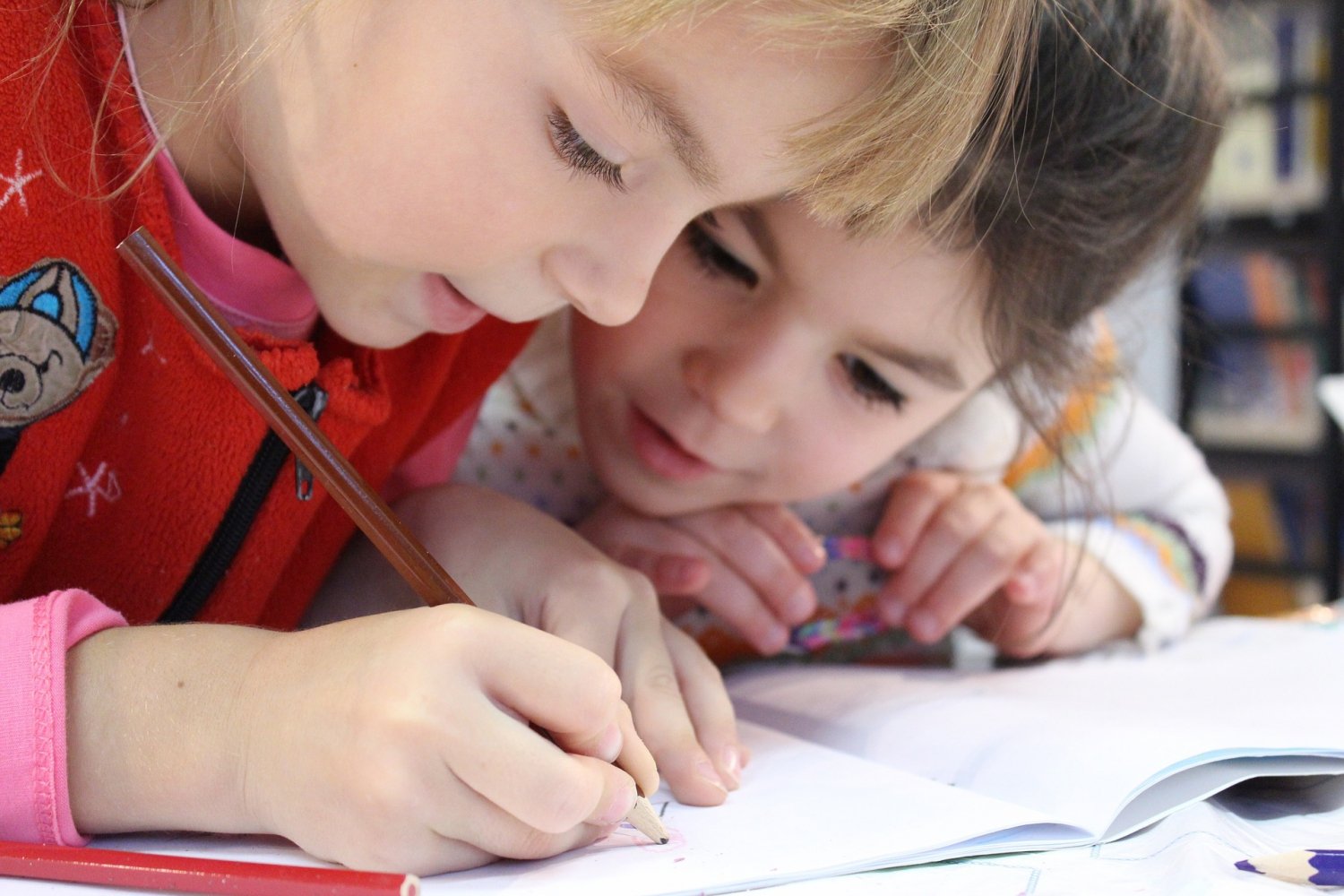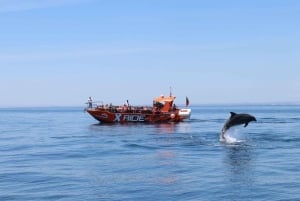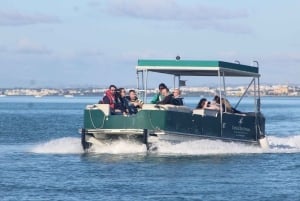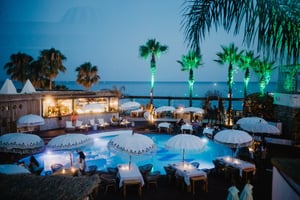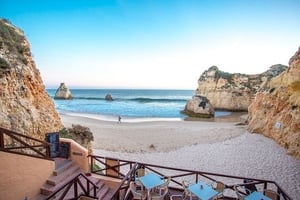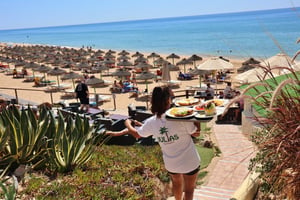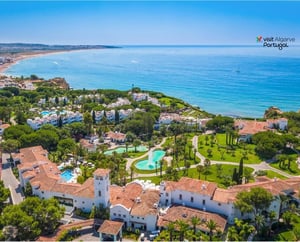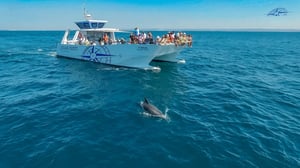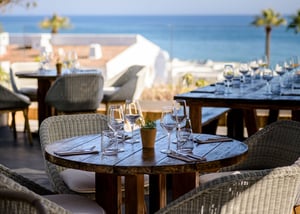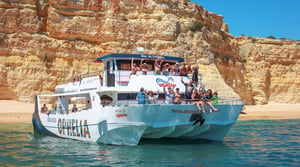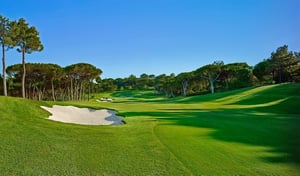Schools in Portugal - private and public education
Book Top Experiences and Tours in Algarve:
If youʻre booking your trip to Algarve last minute, we have you covered. Below are some of the top tours and experiences!- Portimão: Benagil Caves Speed Boat Tour with Sunset Option
- Albufeira: Full-Day Buggy Tour with Lunch
- Faro: Ria Formosa Natural Park Segway Tour & Birdwatching
- Algarve: Horse Riding Beach Tour at Sunset or Morning
- From Albufeira: Half-Day Off-Road Quad Tour
Below we look at the education options available to expats and residents in Portugal, comparing the public and private systems, from pre-school to university.
- find out about the public school system
- find out about private schools in Portugal
- find out about International schools in the Algarve
Overview
- Education in Portugal is compulsory from the age of 6 years to 18 years. While not compulsory it is usual for children to attend pre-school from the age of 3.
- Within the Portuguese education system, there are 3 cycles – Pre-school, Basic and Secondary.
- There are both private and public (state) schools available in Portugal as well as international schools.
- Universities and Polytechnics in Portugal can also be private or public.
According to the 2018 PISA report (Programme for International Student Assessment) Portugal ranks with the OECD average in reading, maths and science and is one of a few countries showing a positive trajectory over the years.
Also of interest is that significantly less children in Portuguese schools experienced bullying, compared to the OECD average – 14% v 23%.
Public Schools in Portugal
The public education system provides schooling free of charge to all residents and is compulsory for children aged 6 to 18 years of age. There is limited free pre-schooling available – see below the information on Private Schools.
Basic School / Ensino Básico, 1º ciclo
Years 1 – 4 for children aged 6 – 10. Children learn Portuguese, Maths, Science, Art. English is taught in years 3 and 4. It is often available earlier as an extra-curricular activity.
School generally beings at 08:30h and ends in the afternoon. There are extra-curricular activity programmes available at schools until later, to facilitate working parents.
Basic School / Ensino básico 2º ciclo
Years 5 and 6 for children aged 10 – 12. Subjects include Portuguese, English, history and geography of Portugal, math, sciences, physical education (PE), visual education, information technologies, music.
Basic School / Ensino Básico 3º ciclo
Years 7 to 9 for children aged 13 – 15. Subjects include Portuguese, English, maths, a second foreign language (Spanish, French, or German), history, geography, chemistry and physics and physical education (PE).
Secondary Education / High School
Years 10 – 12 for children aged 15 – 18. The students choose their area of study – Science, Economics, Humanities and Art. These are academic courses aimed at preparing students for third-level education.
There are also Professional Courses offered at this stage – these are more practical courses aimed at preparing students for the workforce as well as for third-level education.
In year 11 and 12, students undertake national exams and access to third-level education is based on these results plus their average results over years 10 to 12.
Notes on Public Schools in Portugal
- Schooling is free
- Books and school supplies are not free
- School lunches are available at heavily subsidized rates and the food is healthy and usually tasty
- School canteens are obliged to provide vegetarian options
- Class size can be large – 20 – 30 pupils in the 1º cycle for example
- Public schools do not use school uniforms
The Language Issue
For foreign students joining Portuguese public schools, Portuguese lessons are provided free of charge and family members can sometimes attend too. It is worth bearing in mind that younger children usually pick up a language fairly quickly. While the initial months may require more effort, there is generally no negative impact on their school performance. The neurological benefits of speaking more than one language are well documented and the social benefits of speaking the language of the community are enormous.
For older children, those nearing the end of their schooling, the adaption to education through Portuguese can be more difficult.
General comments
As with public schooling in many countries, the Portuguese system is not without issues – classes can be large, and there is a considerable amount of homework, even for the younger children. However, overall, the level of education provided is high.
The system leans toward the academic rather than the practical. The upside of this is that students who have successfully completed their compulsory schooling in Portugal often find the jump-up to university education outside of Portugal relatively easy.
While there is some level of choice, access to public schools is generally dictated by location (your address) matching up with availability.
Private Schools in Portugal
There is a complete range of private schools in Portugal covering every age group. Private schools, often referred to as colégios, follow the Portuguese curriculum and system, while International Schools often offer a dual system – Portuguese and international curriculums.
Private schools in Portugal are fee-paying schools and the investment required is significant. Most private and international schools are located in Lisbon, Porto and the Algarve, serving the larger urban and expat communities there.
Creches and Pre-school
The free public school system only starts from 6 years of age. Before that, there is a mix of private and public options, however, the public options do not match demand, so private childcare is the norm, especially for the youngest children. Monthly fees are approximately €350 - €500 per month.
Creches accept children from 4 months of age up to 3 years of age. From 3 to 6, children attend kindergarten. While there are free public kindergartens (Jardim de Infancia) places are limited and not always sufficient for demand.
Private Schools
Colégios are private schools that generally follow the Portuguese education system as outlined above, and classes are in Portuguese. There are some private schools that offer a bilingual system, teaching in English.
Generally, private schools are considered to offer very good standards of education and are seen as being more rigorous than public schools. While some private schools top the rankings for schools in Portugal, being a private school is not a guarantee of quality, and there are public schools that also rank highly.
International schools
With a growing expat community in Portugal, it is no surprise that there are some very good International Schools available.
International Schools differ from Colégios in that they usually offer an international or British curriculum and teaching is in English. Some International schools have a dual International and Portuguese system.
An international school is often a good option for older children or if your family is in Portugal due to your career movements and you may move on again after a few years.
Both private and international schools are fee-paying schools and the investment is considerable, ranging from €5.000 to €20.000 per year depending on the school year your child will attend.
In the Algarve there are several International Schools available:
Montalvo International School - upper secondary school following the English school curriculum. iGCSE and A-Levels, as a launch pad to higher education. Small class size, critical thinking skills, embracing technology and forging connections with the local community while raising educational standards are among the pillars of the Montalvo School ethos. Located in Loulé
Nobel Algarve International School - Portuguese and British Curriculum, International Baccalaureate (IB) Diploma.
Vilamoura International School - Portuguese and British Curriculum, Cambridge IGCSE and A-Levels
Aspire International School - Cambridge International Curriculum
Third Level Education in Portugal
Public Universities and Polytechnics in Portugal provide third-level education at very reasonable rates. The tuition fee is fixed each year by the authorities and usually does not exceed €1.000 per year. For example, the fee for 2021 is €697 per year. This makes attending university in Portugal a very attractive proposition.
Entry to public third-level education is determined by the student’s end of school grades.
There are also private universities in Portugal. The tuition fees here are considerably higher than the public universities but still much lower than private universities elsewhere. Fees can range from €350 to €750 per month.
An increasing number of international students choose to attend university in Portugal and it is possible to find courses taught in English.


